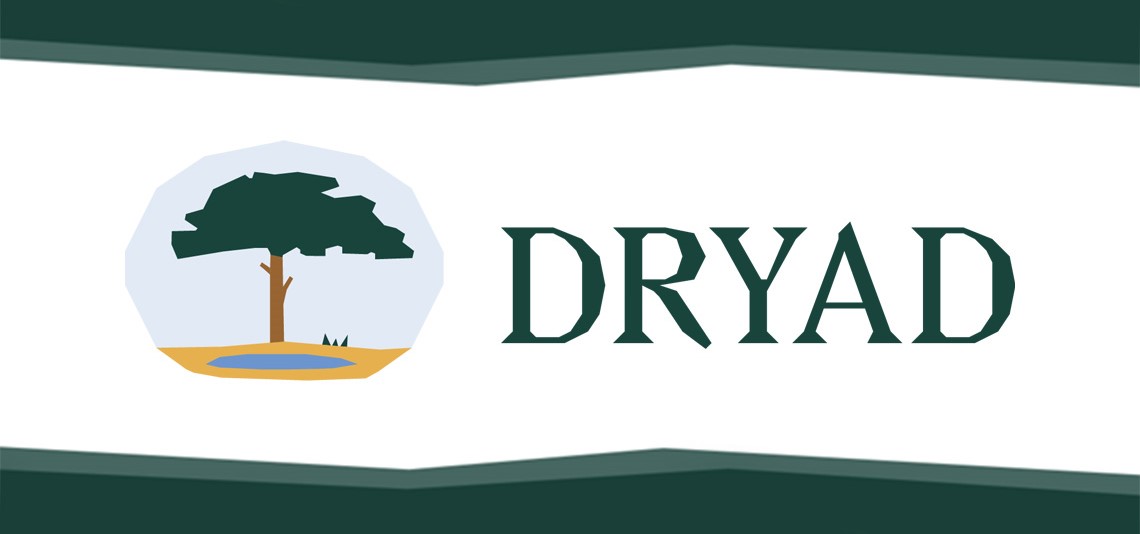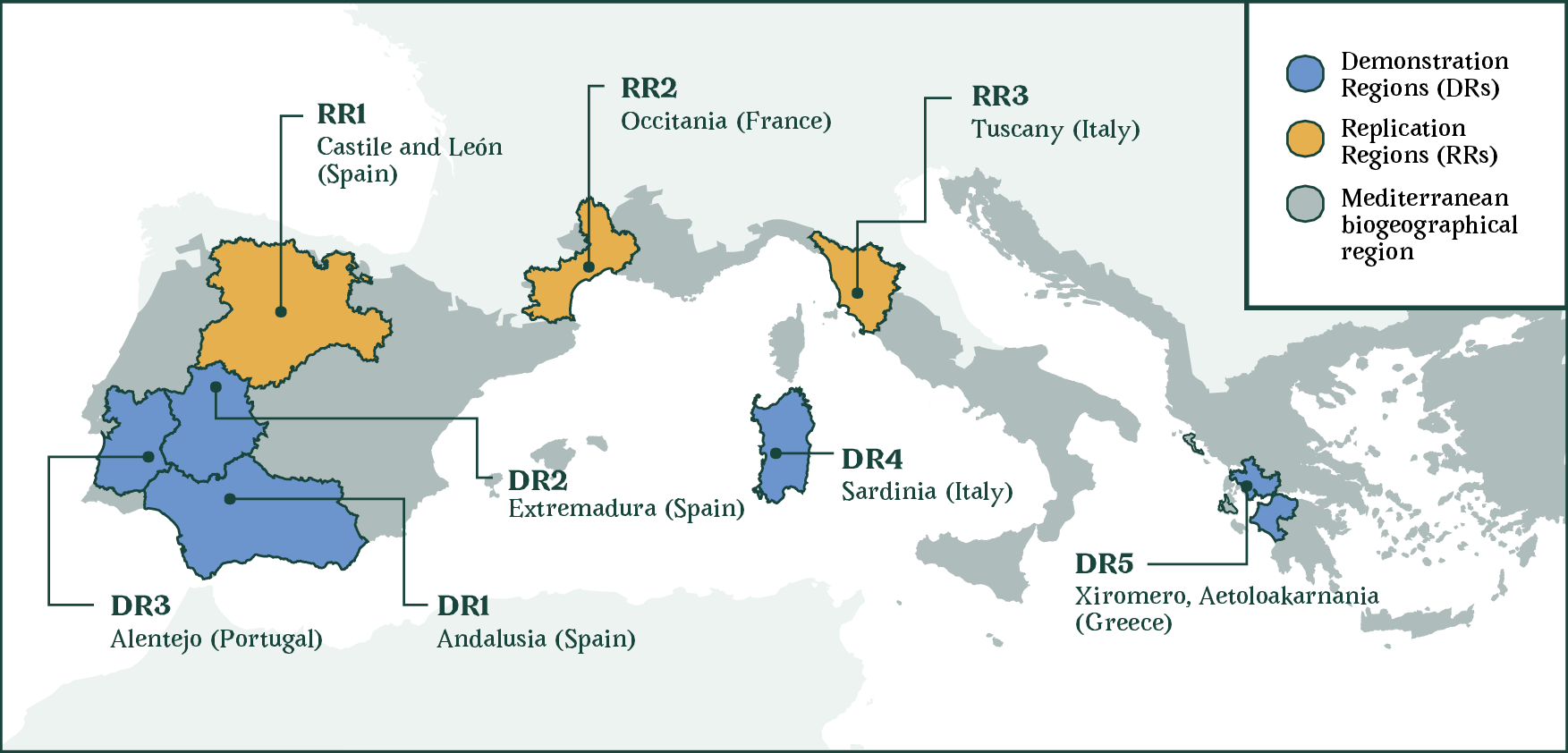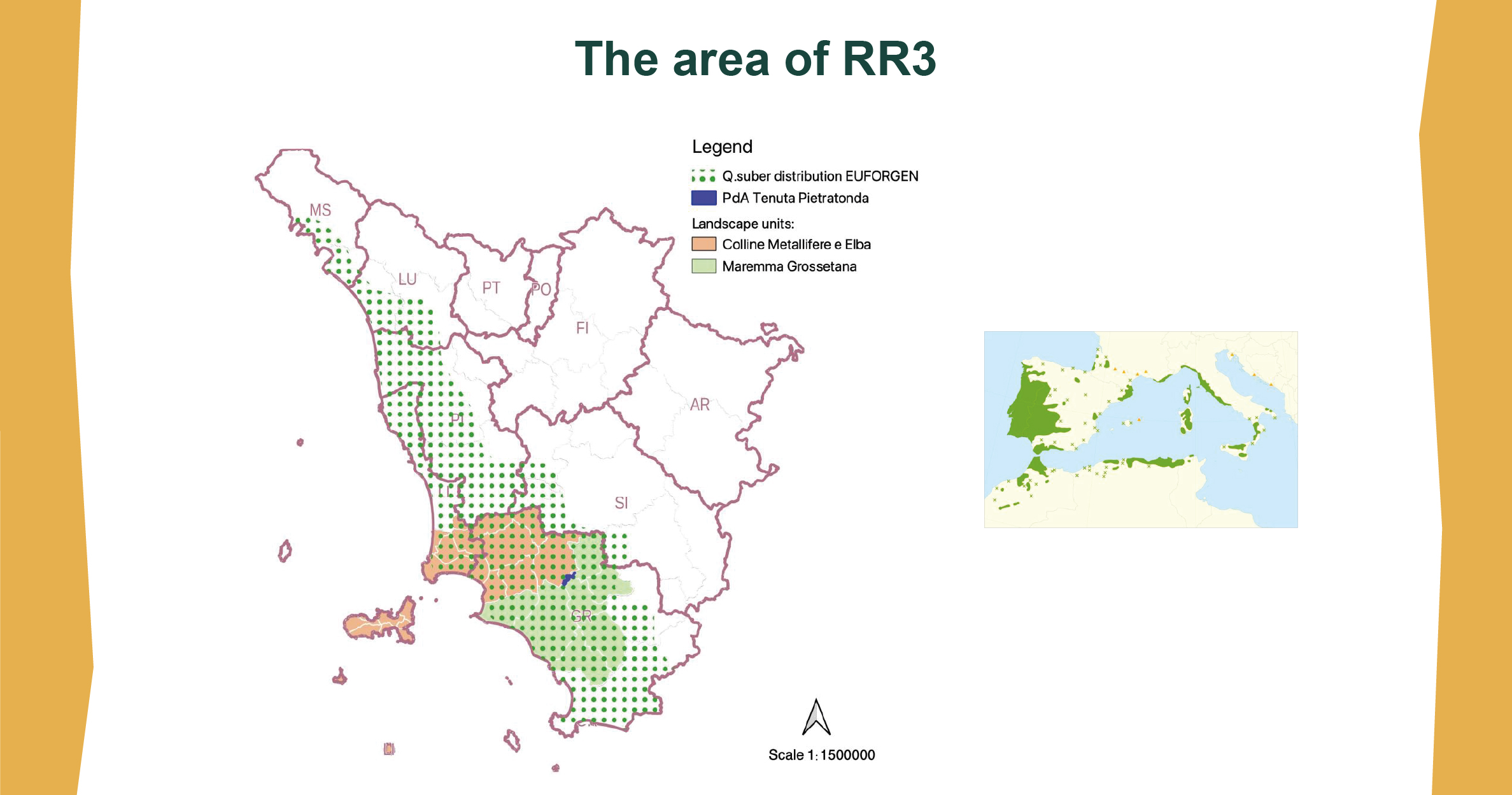DRYAD

Demonstration and modelling of Nature-based solutions to enhance the resilience of Mediterranean agro-silvo-pastoral ecosystems and landscapes
Mediterranean agrosilvopastoral ecosystems (MAEs), such as Dehesa in Spain, Montado in Portugal, Meriagos in Italy, & Valonian oak forests in Greece, provide essential environmental services and influence significantly local communities and their economies. MAEs are expected to be severely affected by climate impacts and extreme conditions such as droughts, high tree mortality and wildfires. Addressing these challenges, requires supporting local communities and authorities with local solutions and transformations towards climate-resilience.
The DRYAD project supports the Mission Adaptation to Climate Change by developing and implementing real-life, climate-resilient nature-based solutions (NBS) for MAEs. DRYAD combines front-line scientific, technological, social, and business innovations as well as transformative solutions. The project focuses on developing, testing and demonstrating NBSs in 5 demonstration regions including Andalusia and Extremadura (ES), Alentejo (PT), Sardinia (IT) and Aetoloakarnania (EL) (5 in Cohesion Fund Regions). The most promising NBSs will be transferred to these 3 replicating regions: Castilla-y-León (ES), Occitanie (FR) and Tuscany (IT).

DURATION
DRYAD is a Horizon Europe project running from 2024 to 2028.
COLLABORATIONS AND PARTNERS
This project is coordinated by the University of A Coruña (UDC). DRYAD includes 27 partners from 6 different countries (Spain, Netherlands, Portugal, Italy, Greece, France)
Objectives of the Project
Data acquisition and management.
Modelling in support to Nature Based Solutions.
Implementation of Nature Based Solutions in Pilot Demonstration Areas.
Decision Support System for Nature Based Solutions.
Multi-stakeholder engagement via Bridging Lab and knowledge dissemination.
Demonstration and replicating regions.
Areas of Intervention of AlberItalia

LOCATION
Sounthern of Tuscany Region, Province of Grosseto
POPULATION
28 Municipalities, 217,000 resident (one of Italy's least densely populated area)
AREA
4,504 km2
ECOLOGICAL SIGNIFICANCE
North-East core area limit of cork oak distribution.
Key stakeholders to engage:
- Community of the Municipalities of the Colline Metallifere (Unione di Comuni montana Colline Metallifere): the cluster of 4 municipalities deliver integrated services in planning, land protection, monitoring, and environmental assessment.
- Tenuta di Pietratonda is a large agrosilvopastoral farm located in the Monte Leoni (GR) area. It hosts significant fragments of cork oak stands and is engaged in a partnership with Fondazione AlberItalia to test Nature-Based Solutions to support Sustainable Forest Management. These efforts aim to monitor and enhance the resilience of Mediterranean agro-silvo-pastoral ecosystems and landscapes.
- Forest Stewardship Council Italy (FSC Italy) - DRYAD Partner.
- Tuscany Regional Administration, Service Agriculture and Food, section Forest and Woodlands.
- CoopERA, SME of professionals specialised in Destination Management, Archaeology, Environmental Hiking Guide, Technical Management, Tour Operating.
- Legambiente Toscana, an environmental association very active in forest conservation and sustainable management, environmental education, communication and training.
- Cork oak producers with agro-silvo-pastoral management in the area.
Actions to be implemented:
- Forest, soil, and micrometeorological monitoring and characterization;
- Evaluation of the water issues as related to various degrees of cork oak productive stands abandonment and former practices;
- Coupling to Earth Observation monitoring of the state of forests by testing innovative indicators and models;
- Implementation of NBSs, inspired by the PDAs to improve water retention, forest health, and ES (ecosystem services), among which particular interest will be given to cultural services and innovative business models (e.g. forest therapy settings; nonwood forest products and relative value chain, ecotourism);
- Capacity building initiatives and actions for farmers, professionals, decision makers, and youth and women associations and SMEs;
- Regulation action to propose better solutions for the CAP (Common Agricultural Policy) regulations to favour the MAEs (Mediterranean Agro-silvo-pastoral ecosystem).
